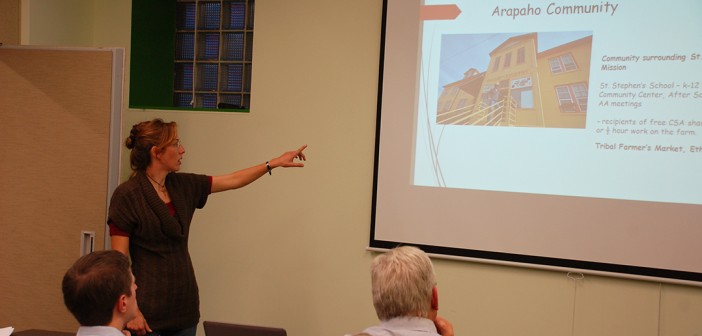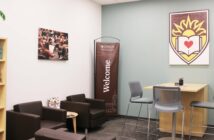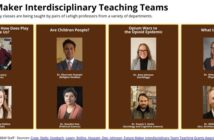Representatives from the Rodale-ILR partnership program, an organic farming-focused non-profit, presented their final group projects to panel members Nov. 5.
The teams consisted of members of the Lehigh community who collaborated with interns from the Rodale Institute in Kutztown, PA. Rodale is a nonprofit organization that dedicates its resources to exploring innovative ways of implementing organic farming. Since September, each team has come up with an idea that has been formulated into a business plan.
“They’re working and learning from each other,” said Sarah Wei, ’16, this year’s director of the partnership. “We structured a program so they can start with an idea, define a market and define a business plan.”
This is the second year that Lehigh has supported this partnership. Working with this particular institution, Wei gave the program the name “LOGS” or “Leaders of Organic Generation.” The partnership was formed to aid both parties in developing as entrepreneurs.
“(We paired) the students to enhance their learning and get their business side (and) their creative side stimulated,” said Amy Carbine Stauffer, project mentor.
The students involved in the project range from first-year students to master’s students from the university’s various colleges.
“Even though I’m in the engineering school, getting the opportunity to work and develop an actual business model is an experience that challenged and forced me to adapt and learn new materials,” said Jay Chokshi, ’17, a contest participant. “It’s an incredibly challenging and fun program to be a part of.”
The representatives from each team made a 13-minute presentation regarding their business plan’s focus. They were presented in front of the other program participants, as well as four panel members who consisted of two current Lehigh students, one Lehigh graduate, and one of the university’s marketing professors.
The panel members were put in place to simulate a presentation to real world investors. The members asked questions about the presenters’ marketing plans, operations plans, and financial plans.
The business plans were extremely diverse in the way the teams implemented organic farming into every day life. One presentation called, “Zymurgy,” focused on fermentation at an urban site in Brooklyn, NY, while the “Sprouts” presentation called attention to helping communal youth obesity rates through garden implementation and knowledge in Pennsylvania schools.
One group’s project focused on a deteriorating Indian reservation in Wyoming that is home to Shoshone and Arapaho tribes. Another group, looking to be centered in New Orleans, had the idea of constructing a worker collective non-profit farm. The final intern to present used organic farming to invent the idea of a café that sells tea and yogurt puffs, a healthier alternative to cream puffs. The yogurt puffs are already backed by Whole Foods Market.
The groups met once a week over an eight to 10 week period and developed their ideas in stages, presenting their developments to the project mentors following each phase of completion. The benefits of the partnership emanate from both ends and will likely continue in the coming year.






Comment policy
Comments posted to The Brown and White website are reviewed by a moderator before being approved. Incendiary speech or harassing language, including comments targeted at individuals, may be deemed unacceptable and not published. Spam and other soliciting will also be declined.
The Brown and White also reserves the right to not publish entirely anonymous comments.